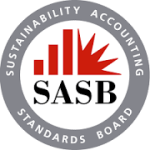How much capital flows when, where and for what purposes? Banks and financial service providers make these decisions, thereby exerting an enormous influence on economic and socio-political processes. They can also give significant impetus to sustainable development, for example by applying minimum environmental and social standards in their asset management and credit operations. The Munich-based rating agency oekom research examined in a "Corporate Responsibility Rating the extent to which the finance houses rise to this challenge. 93 of the worlds leading banks and financial service providers were examined according to a total of 200 environmental and social criteria. The result: on a scale from A+ to D-, the HypoVereinsbank (DE) came out on top with a B, followed by Deutsche Bank (DE), Westpac (AU) and UBS (CH), each scoring a B-. Sumitomo Mitsui Banking (JP) came in 43rd position with a D. The majority of the companies (50), proved to be so lacking in transparency that it was impossible to analyse their social and environmental activities in any depth.
Environmental aspects scarcely play any role in product development by the finance houses examined. It is rare to find, for example, more favourable lending terms for companies presenting a low environmental risk. The sole exception is in the area of investment products: "The range of sustainable investment options on offer is expanding continuously. Nevertheless, this form of investment still makes up less than one per cent of the overall volume of investments offered by the banks and financial service providers studied, says Matthias Bönning, the analyst responsible for the study at oekom research. Growing public criticism now ensures that more sensitivity is applied to the financing of large-scale projects that are environmentally and socially controversial such as the OCP pipeline in Ecuador, the construction of which would threaten important ecosystems. European companies, in particular, are increasingly observing minimum environmental and social standards.
The financial sector shows substantial social commitment in some areas: good levels of remuneration, innovative schemes regarding working hours and a range of measures to promote equal opportunities set the tone. The companies also show themselves to be generous in terms of sponsorship: large donations to the arts, research and education are common, though their support only rarely benefits the poorer countries. The current poor economic climate and ongoing consolidation and merger processes are leading to mass redundancies even among the banks and financial service providers. However, in order to lessen the negative consequences somewhat, the companies are endeavouring to structure the job cuts in a socially acceptable way, for example through further training programmes.
oekom research gave the sectors performance in the environmental sphere an average rating of C-. There is a much potential for improvement in the area of product design, in particular. Compared with other sectors, this sectors performance in the social sphere has been awarded an extremely high average rating of C+. However, there was a large gap between the performance of the leading companies and that of the tail-enders.
93 companies were analysed in the present Corporate Responsibility Rating:
A complete list with the names of the companies can be obtained from oekom research.



